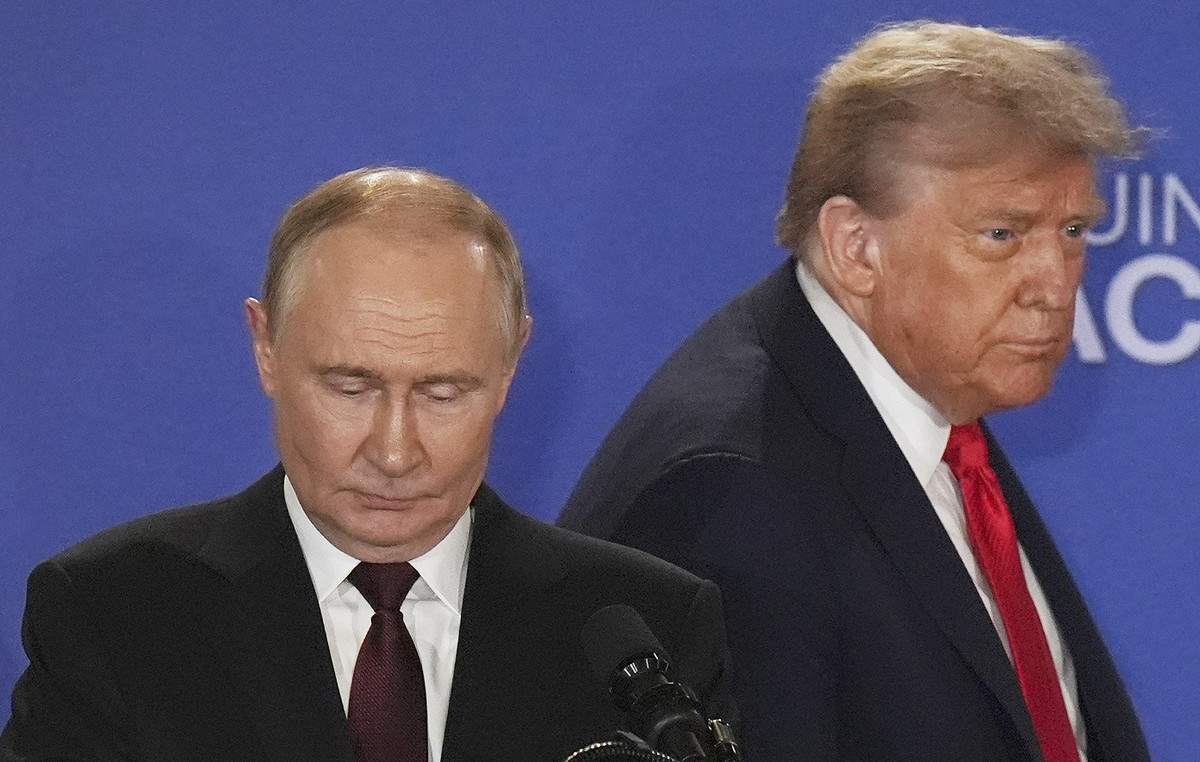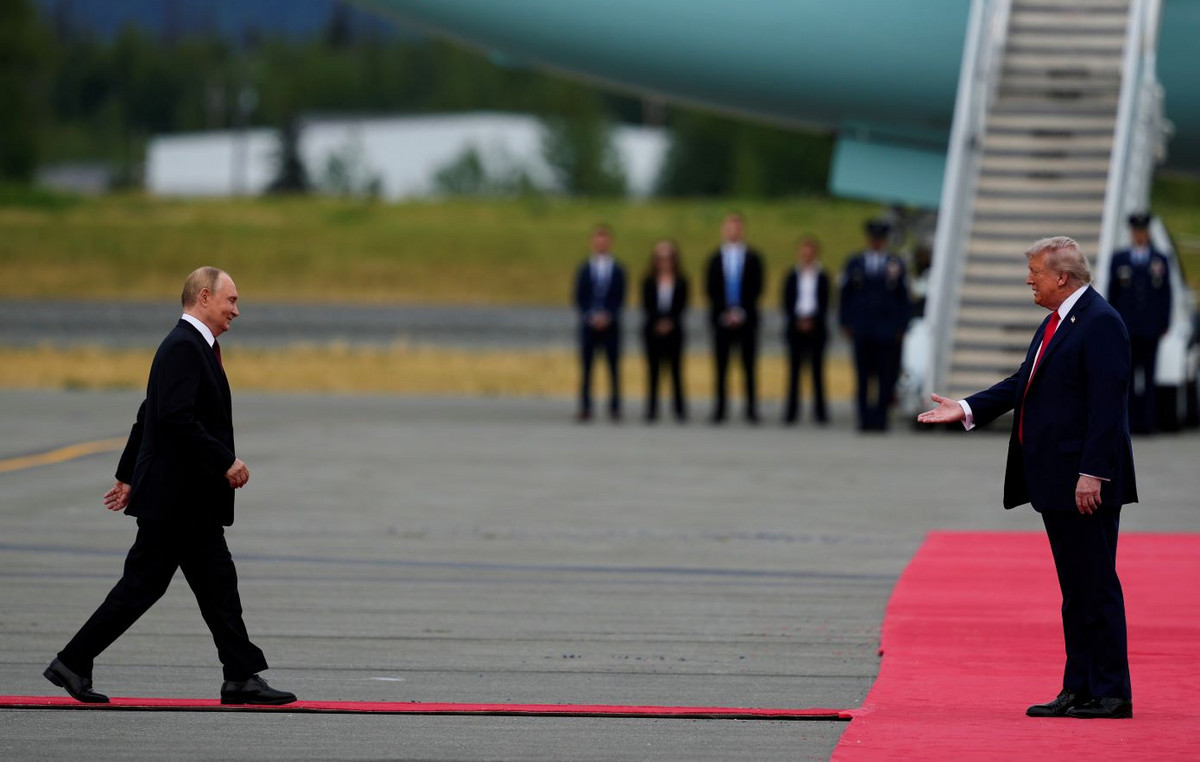Liz Truss has a lot of work ahead of her. The UK is heading for a recession. Workers are going on strike as inflation erodes their living standards. And millions of people and thousands of businesses need immediate relief from rising energy bills to survive the winter.
“This is a difficult time for the economy,” admitted former Prime Minister Boris Johnson on Tuesday (6) in his farewell speech. Speaking upon her arrival at Downing Street, Truss said she would “ride the storm”, promising help with energy bills and tax cuts.
But the new prime minister is in trouble. If her government borrows too much money, it risks further fueling inflation and stoking growing fears among investors that the country’s finances are becoming unsustainable. That could push the pound down, which would push prices up even further and make it harder to pay for essential imports.
In other words, the UK could withstand the kind of meltdown it suffered in the 1970s, when the combination of an energy shock, rising prices and heavy government spending forced the country to turn to the International Monetary Fund (IMF). for a big bailout – an alarming prospect for a G7 economy.
Not so long ago, this kind of scenario would have sounded strange as a talking point. But as Truss points to a massive energy relief package and talks of tax cuts, and the pound remains mired near its lowest level in decades – some analysts are warning that a “balance of payments” crisis cannot be ruled out. .
“Ultimately, the materialization of these risks comes down to the credibility of the new government’s policy in the coming weeks and months,” Deutsche Bank strategist Shreyas Gopal said in a note to clients on Monday titled “Critical Time for pound sterling”.
What is a balance of payments crisis?
Former Bank of England Governor Mark Carney once remarked that the UK depends on “the kindness of strangers”. That’s because it has a large current account deficit, which means it needs foreign investors to keep pumping money into the economy so it can pay for imports and meet other important obligations.
If they lose confidence, turmoil in the financial system can quickly snowball. As traders dump the country’s currency, its value plummets, fueling inflation and forcing the central bank to raise interest rates even further to try to control the situation. This can make recessionary conditions worse, and so the spiral continues.
Investors typically expect these circumstances to arise in emerging markets – especially those with dollar-denominated debt. When their currency drops, it becomes even more expensive to pay their obligations. The most lauded example today is Argentina, which signed a $44 billion debt deal with the IMF in March.
However, there are precedents in the UK. When the pound rapidly lost value against the US dollar in the mid-1970s, the country was forced to ask the IMF for $3.9 billion, noted Gopal. At the time, this was the highest amount ever requested.
The pound is on the ropes again now. The currency briefly dropped Monday to around $1.14, its lowest level since 1985. It has lost nearly 15% of its value against the US dollar so far this year. That’s even worse than the euro, which has fallen by less than 13%.
UK government borrowing costs are also skyrocketing as investors dump the country’s bonds.
Investors are fleeing British assets because of concerns about the economy. UK inflation is the highest in the G7 and could soar further next year if natural gas prices remain high. The Bank of England has been raising interest rates since last December and may be forced to take even more aggressive action.
“UK assets are not much loved right now,” said Paul O’Connor, head of the multi-asset team at UK-based Janus Henderson. “The main reason, of course, is that the UK is facing a really acute cost-of-living crisis and significant political uncertainty around that.”
This is a big problem for the UK because it has a record current account deficit, according to Gopal, meaning it spends more on goods, services and investments abroad than it takes in at home. Years of anemic growth and a post-Brexit trading slump have not helped.
“The pound requires large capital inflows supported by improving investor confidence and falling inflation expectations,” wrote Gopal. “However, the opposite is happening.”
The UK is not Argentina, but…
The currency rose slightly on Tuesday as Truss officially began her term as prime minister.
Investors were encouraged by the first reports on its plans to weather the energy crisis, which are expected to be announced this week. She is expected to announce a cap on energy bills by borrowing £100bn ($115bn). That would even exceed the €95 billion ($94 billion) the German government has committed to tackling similar problems.
“Investors see this as a very decisive way to alleviate UK recession risks,” O’Connor said.
But questions may resurface about how she plans to pay for this aid package and other campaign promises — such as boosting defense spending and reversing proposed business and payroll tax increases — and whether investors will be worried that UK borrowing spirals out of control.
“Having a real financial crisis – and the pound going down, if that accelerates – is a serious and serious issue for real people, day in and day out,” former UK finance minister Ken Clarke told the BBC on Tuesday. 6). He has criticized Truss’ plans to cut taxes, which she says will help finance spending increases by boosting economic growth.
Viraj Patel, global macrostrategist at Vanda Research, thinks the fears are overblown. It puts the probability of a balance of payments crisis in the UK at less than 5%.
“A lot of things have to go wrong to get to that point – and one would imagine the UK government would quickly pivot before then on any policy that is raising concerns,” Patel said, adding that tax watchdogs such as the Office for Budget Responsibility, are watching the situation closely.
Deutsche Bank’s Gopal acknowledged that the UK is different from countries like Argentina in one key respect: it issues debt in its own currency, which means that when the pound falls, it does not face additional concerns about paying off liabilities. . Still, he continued, it’s not right that investors are starting to back down.
“With the global macro scenario so uncertain, investor confidence cannot be taken for granted,” said Gopal.
Source: CNN Brasil
Joe Jameson, a technology journalist with over 2 years of experience, writes for top online news websites. Specializing in the field of technology, Joe provides insights into the latest advancements in the industry. Currently, he contributes to covering the world stock market.







